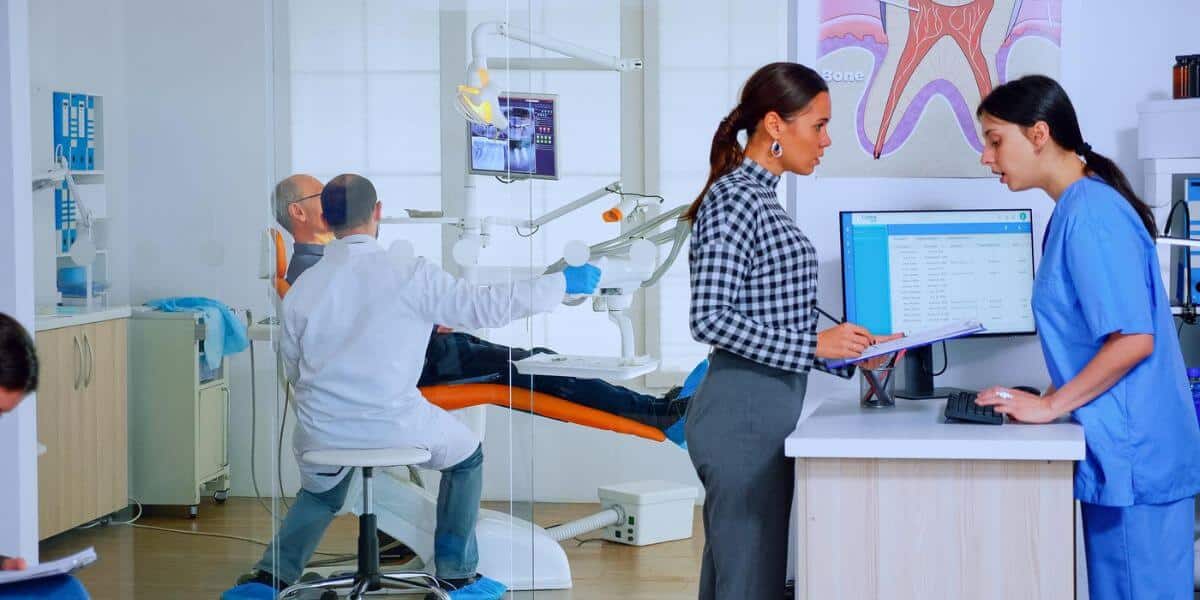When you’re looking to buy or sell a business, especially something as specialized as a medical practice, getting the valuation right is crucial. One of the most common terms used in this process is SDE, short for Seller’s Discretionary Earnings. Understanding the SDE definition and how it applies to valuation methods can give both buyers and sellers a clearer picture of a business’s worth.
In this blog, we’ll walk through the SDE meaning, its role in business sales, especially within medical practices, and why it remains a popular measure in private healthcare business transactions.
Table of Contents
ToggleUnderstanding the SDE Definition
SDE (Seller’s Discretionary Earnings) refers to the total financial benefit a single full-time owner-operator derives from a business. It goes beyond net profit, incorporating certain add-backs and adjustments that reflect the true earning potential for an incoming owner.
These earnings typically include the owner’s salary, one-time expenses, personal expenses run through the business, and non-cash items such as depreciation. By adjusting the profit in this way, SDE provides a more complete view of what a buyer might expect to earn from operating the business themselves.
In simple terms, SDE’s meaning is the income a new owner could potentially take home, assuming they plan to work full-time in the business.
Why Is SDE So Common in Business Valuation?
In small to mid-sized businesses, especially privately owned practices, it’s common for personal and business finances to overlap. A medical practice owner might run certain personal expenses through the practice, such as a vehicle or mobile phone plan. While these may be acceptable for tax purposes, they don’t reflect the actual cost of operating the clinic under new ownership.
SDE analysis helps correct for these overlaps. It pulls back the curtain on what the practice genuinely earns by stripping away items not essential to future operations. This helps a buyer determine how much cash flow the business truly generates.

SDE and Medical Practice Valuation
Medical practices are slightly more complex than general retail or service businesses when it comes to valuation. They often involve long-term patient relationships, complex billing systems, and staff who play a vital role in delivering services. However, SDE remains a valuable baseline when performing a medical practice valuation, especially for smaller practices or single-provider clinics.
Here’s how SDE fits into the picture:
- Owner-Involved Practices: For a clinic where the owner is the sole provider, SDE is a practical way to show buyer potential income, especially if the buyer plans to replace the seller in a similar role.
- Add-Backs for Discretionary Spending: If the selling physician has been paying for non-essential travel or personal insurance through the business, these are added back during the SDE analysis to reflect the true operating income.
- Benchmarking Across Opportunities: Buyers comparing multiple practices can use SDE as a benchmark figure to assess earnings potential more consistently across different locations and specialties.
How SDE Supports Valuation Methods
Business brokers and valuation experts often use SDE in conjunction with industry multiples to calculate a practice’s value. A multiple is applied to the SDE based on various factors such as risk level, growth trends, local competition, and staff dependency.
The chosen valuation methods may vary, from income-based approaches to market comparisons, but SDE often serves as the foundation for those methods. It gives structure and consistency to what can otherwise be a highly variable process.
The Subjectivity of SDE
While SDE is a useful metric, it does involve a degree of subjectivity. The value of certain add-backs may be disputed by buyers, especially when it comes to personal expenses or one-off costs. That’s why transparency is key. Sellers should be ready to explain and support any adjustments included in the SDE calculation.
Brokers play a critical role in this process by preparing a Seller’s Discretionary Earnings schedule as part of a valuation report. This schedule outlines the exact add-backs used to calculate SDE so that both parties are on the same page.
SDE vs EBITDA
While both SDE and EBITDA are used in business valuations, they serve different purposes. SDE is typically used for small, owner-operated businesses, whereas EBITDA (Earnings Before Interest, Taxes, Depreciation, and Amortization) is better suited to larger businesses with multiple stakeholders or external management.
The key difference lies in the treatment of owner compensation. In EBITDA, the owner’s salary is treated as a normal business expense. In SDE, it’s added back, providing a more favorable picture of earnings for a buyer planning to take over operations directly.

SDE in a Small Clinic Setup
In a small clinic setup, understanding SDE can help a physician evaluate the financial health of their operation or prepare it for sale. Since the clinic likely revolves around one or two providers, personal spending habits, irregular income, and discretionary expenses can easily distort the financial picture. SDE brings clarity by organizing the data in a way that is practical and informative for potential buyers.
This is particularly helpful in rural or niche specialty clinics where the clinic owner plays a direct, ongoing role in patient care. In such cases, SDE is often the best indicator of the practice’s revenue-generating potential.
The Importance of an Expert Valuation
Because calculating and presenting SDE involves judgment and industry knowledge, working with a professional business broker is essential. An experienced broker can accurately assess the practice, identify suitable add-backs, and apply the right valuation method. They can also help interpret how sellers’ discretionary earnings compare with other opportunities in the market.
Summing It Up
SDE is more than just a number on a financial statement. It offers a realistic view of what a buyer could earn from a business, especially in fields like healthcare, where ownership and service delivery often go hand-in-hand.
Strategic Medical Brokers can guide you through every step, from reviewing your medical practice valuation calculator results to listing your medical practice for sale. Our experts understand the nuances of practice ownership and valuation, helping you unlock the full value of your clinic and move forward with confidence.









